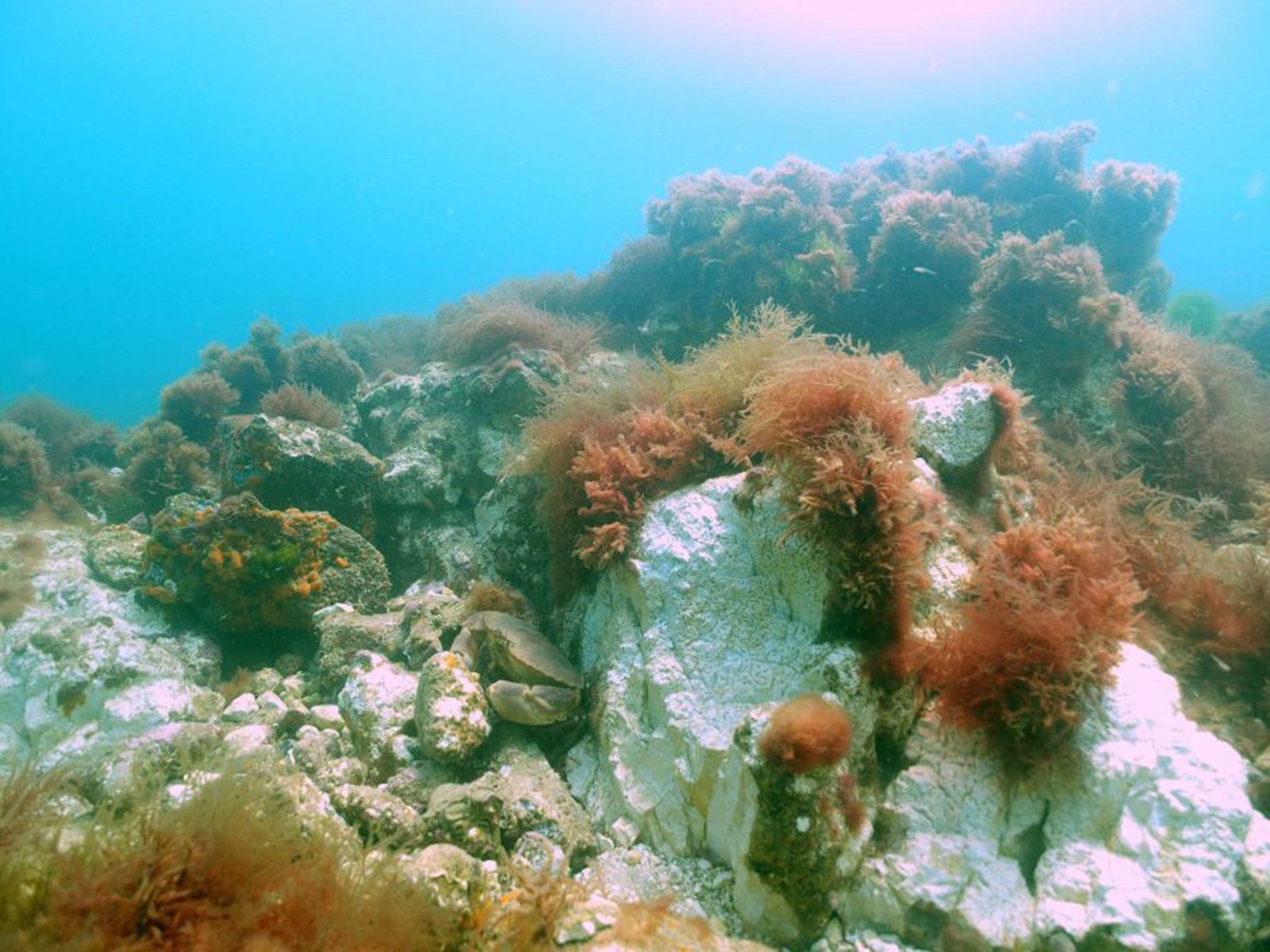Cromer Shoal Chalk Beds near Norfolk coast among new marine conservation zones
The chalk reefs have 'dramatic features sculpted during the Ice Age' according to the Marine Conservation Society

Europe’s longest chalk reef and one of the deepest areas of the North Sea were among 23 new marine conservation zones (MCZs) designated by the Department for Environment Food and Rural Affairs.
The Cromer Shoal Chalk Beds, which stretch for 20 miles off the coast of Norfolk, have “dramatic features sculpted during the Ice Age” according to the Marine Conservation Society.
“The chalk is very delicate and is destroyed by things like fishing and dredging,” said Dr Peter Richardson, the society’s head of biodiversity and fisheries. “There are chalk cliffs that no longer exist because of the damage that has been done.” He added that the threatened pink sea fan coral, which grows on the reef, will now be protected as a result of the ruling, along with hundreds of species including crabs and lobsters that colonise the soft chalk beds.
Farnes East, off Berwickshire, one of the deepest patches of the North Sea, dropping to 100 metres at points, and Greater Haig Fras near the Scillies, the only substantial area of rocky reef in the Celtic Sea, will also be protected. They join the 27 MCZs that were created in November 2013 and the society is hoping that 40 more will be created in the next couple of years.
Creating them will help the UK achieve “good environmental status” under the European Union’s marine directive, according the society’s specialist Dr Jean-Luc Solandt, who said that more than a century of industrial damage had taken its toll on British waters.
Each zone was assessed on its vulnerability, he said, adding that conservation objectives are drawn up for the areas that are then managed by the Inshore Fisheries, conservation authorities and the Marine Management Organisation.
“If these zones are well managed, in about four years the zones will be in a good state,” Dr Solandt said. “It is necessary to protect these waters to get to good environmental status.” Other developed nations are “miles ahead” of the UK in protecting their seas, Dr Richardson added.
Subscribe to Independent Premium to bookmark this article
Want to bookmark your favourite articles and stories to read or reference later? Start your Independent Premium subscription today.

Join our commenting forum
Join thought-provoking conversations, follow other Independent readers and see their replies